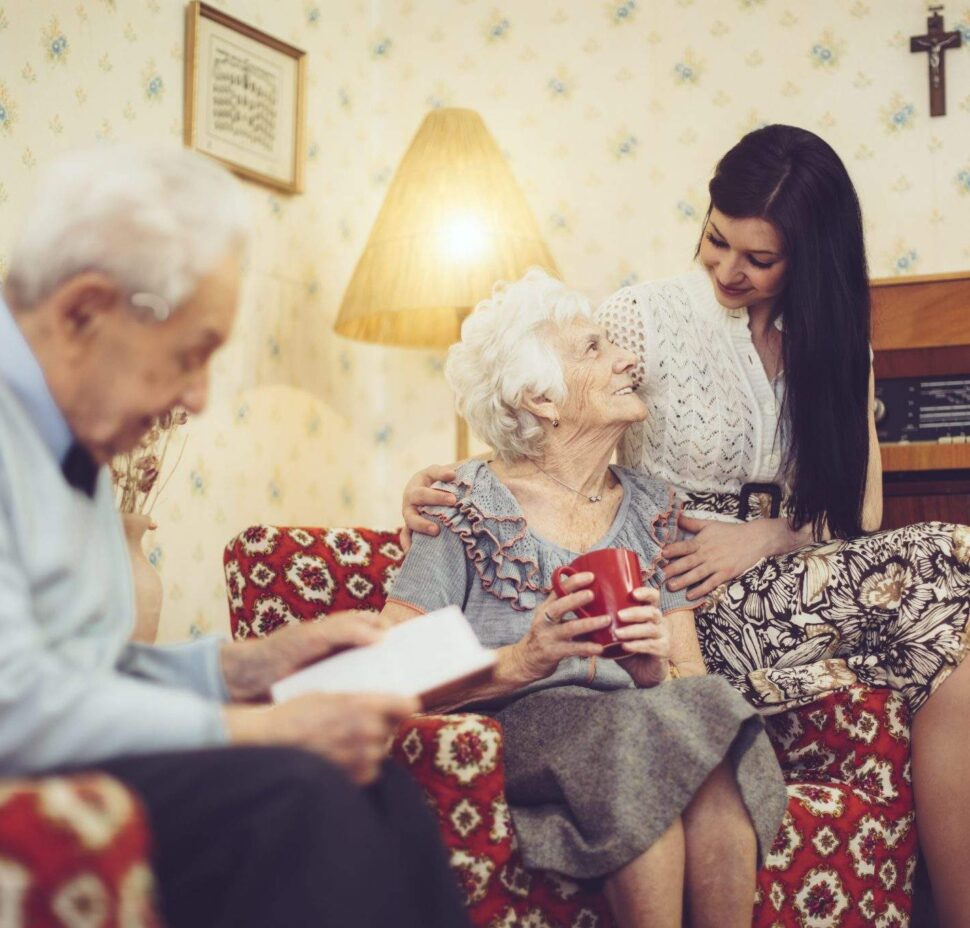October 15 – 21 is National Aging in Place Week. This is an annual effort to expand awareness of the Aging in Place movement and the available means for seniors to remain in their homes for as long as they would like.
Here are four things to consider when elderly parents choose to live home alone:
Create a Safe Space
Aging parents living at home need to feel safe. It is important to work with them to remove any potential hazards in the key rooms they live in: the kitchen, bedroom and bathroom. Some basic changes include: Installing bathroom rails; removing all potential slips and falls, such as throw rugs, light cords, and unnecessary furniture; and even lowering pantry shelves for easy access items. Add more lighting, like nightlights in hallways and motion lights around outdoor walkways. More active older adults should also be aware of the fall risks outdoors while navigating the neighborhood. These changes around the home are simple and inexpensive things you can do to provide family caregivers with an added measure of confidence when having a parent live alone.
Deliver the Essentials to their Doorstep
Driving can be a challenging activity for an elderly parent. The inability or desire to drive may put more demand on the caregiver’s already hectic schedule, but there are solutions that can help. Simplify their grocery shopping by ordering online and having it delivered to their doorstep. If your elderly parents want to do certain errands without the aggravations of driving, utilize a local business, like FirstLight Home Care, that can provide companion care solutions like driving them to various errands, doctor appointments and community activities.
Understand their Medical Needs and Limitations
Many elderly parents are required to take medicines or check their blood sugar levels daily. Living at home, when there’s no one there to remind them, can negatively impact their health and their ability to remain at home. It is important for the family to know and understand their loved one’s medical conditions. Stay in contact with the doctor, pharmacist and/or nurse of an elderly loved one. To reduce stress on the caregiver, consider using mobile health tools like “smart” pill bottles that remind patients to take their medicine, or a calendar app to track doctors’ appointments.
Develop an Emergency Plan
Unexpected falls and medical events (such as heart attacks or strokes) occur, and each second that passes matters. It is important that whatever happens with an elderly parent living alone, there is a communication plan with the caregivers. Devices, such as a Personal Emergency Response Systems (PERS), allow users to easily and quickly call for help in an emergency by pushing a button. A PERS will provide caregivers with peace-of-mind should a loved one suffer a mishap. Mobile PERS solutions can create the perfect balance between care and freedom. These systems have GPS capability, which could help locate an elderly parent in the event of an accident, automatic fall detection and two-way phone communication. This new technology will support elderly independence for the healthy aging population and those living with chronic conditions.
Nearly 90 percent of people over age 65 want to stay in their home for as long as possible, and 80 percent believe their current residence is where they will always live. (source: AARP 2016) FirstLight Home Care provides personalized, in-home companion care services to support people who want to age in place at home and provide peace of mind to family caregivers.
Contact FirstLight Home Care today to learn more about our Companion Care Services and other home care services.
